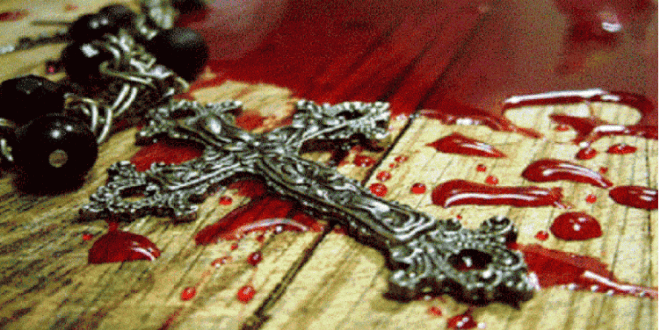Parents gathered outside St. Mary’s Catholic School in Papiri on Friday as authorities confirmed that more than 300 Christian schoolchildren and 12 teachers had been abducted in one of the largest mass kidnappings in Nigeria this year. Church officials who visited the site reported overturned desks, damaged classrooms, and blood on the floor from a security staffer who was shot during the attack.
Niger State officials said the school received intelligence warnings about heightened threats in the area. Despite this, St. Mary’s resumed classes before the attack. Armed men arrived before dawn, opened fire, and seized 303 students in addition to 12 teachers. Another 88 students were captured after attempting to flee, according to the Christian Association of Nigeria. The victims include boys and girls between the ages of ten and eighteen.
The abduction took place days after a church attack in neighboring Kwara State left two worshippers dead and 38 kidnapped. Earlier in the week, armed men stormed a government girls’ school in Kebbi State, killed the vice principal, and abducted 25 students. One girl later escaped.
Security analysts describe a pattern of coordinated attacks across northern Nigeria in which armed gangs target schools, churches, travelers, and remote villages. More than 1,500 students have been kidnapped in the region since Boko Haram seized the Chibok schoolgirls over a decade ago. Although many of the groups are labeled “bandits,” they operate in territories shared with Boko Haram and Islamic State West Africa Province, shifting between criminal and jihadist activity when beneficial.
The Nigerian government ordered the immediate closure of 47 federal “unity schools” across conflict zones and deployed military teams to the affected areas. President Bola Tinubu canceled his trip to the G20 summit in South Africa. The U.S. government is reviewing possible sanctions and expanded counter-terror cooperation. Former President Donald Trump has repeatedly highlighted attacks on Christian communities, designating Nigeria a “Country of Particular Concern” under the International Religious Freedom Act. Secretary of War Pete Hegseth said he met with Nigeria’s national security adviser to address what he called “the horrific violence against Christians.”
Authorities in northern Nigeria continue to face widespread criticism over the failure to prosecute known attackers and the persistent corruption that restricts weapons and resources to security forces while allowing gangs to expand their access to arms. The criminal groups operate in remote forests where they hold captives for ransom and evade military patrols. Local officials report that parents routinely raise large sums to secure the release of abducted children, reinforcing the profitability of kidnappings.
The forced removal of children from classrooms violates the biblical recognition of every human being created in the divine image. In Jewish thought, such actions create a binding requirement on authorities to respond decisively. The principle of pikuach nefesh, the duty to preserve life, does not diminish when the threats are distant, complex, or politically sensitive.
The Nigerian government is under pressure to demonstrate that it can impose security in regions where armed groups operate freely. The Sages emphasized that the legitimacy of leadership depends on its ability to safeguard the vulnerable. When gangs can seize more than 300 Christian schoolchildren, disappear into forest territory, and issue ransom demands without immediate consequence, the state’s capacity to enforce justice is directly challenged.
The response to the St. Mary’s abduction will determine whether the Nigerian government can reestablish control over areas dominated by criminal networks or whether the cycle of kidnappings will continue to escalate as armed groups expand their reach.




